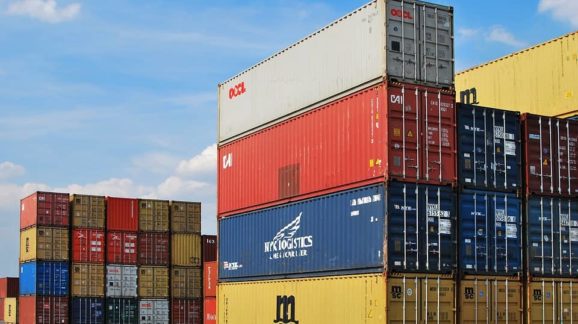Nice dock. Big shame if you modernized it, Trump warns ports

President Trump has signaled that if East Coast dockworkers go on strike, he will back them instead of the ports. This increases the odds that the ports will cave to union demands to halt any further automation. The big loser in that scenario will be the American consumer, who will have to contend with an antiquated, inefficient supply chain.
“For the great privilege of accessing our markets, these foreign companies should hire our incredible American Workers, instead of laying them off, and sending those profits back to foreign countries. It is time to put AMERICA FIRST!” Trump tweeted Thursday.
The International Longshoremen Association (ILA), the union that represents dockworkers on the east coast and the Gulf of Mexico, went on strike briefly in early October. They won a whopping 62 percent pay increase but left unresolved a key issue: automation of the ports.
The longshoremen oppose any further modernization, seeing it as an existential threat to their jobs. The problem is that American ports are some of the least efficient in the world, largely due to the lack of automation. The World Bank’s Container Port Performance Index does not have a single US port in its top 50 ranking for efficiency. Charleston and Philadelphia come in at number 53 and 55, respectively. The ports are keen to fix that and therefore oppose the union’s demand.
The ILA’s October strike was merely suspended and the current cooling off period ends on Jan. 15. The incoming Trump administration could have to contend with a port strike as their first order of business. A strike would halt the supply chain of goods coming in from overseas and create ripple effects through the economy. Store shelves would become empty. Factories would idle due to lack of supplies. Inflation would spike due to the resulting shortages. The October strike only lasted a few days but still resulted in 100,000 containers piling up in New York alone. The Biden administration leaned on the union to back down.
ILA President Harold Daggett has an ace in the hole this time around: a good personal relationship with Trump. The pair had a “wonderful, productive” meeting in 2023 regarding the union’s agenda, according to Daggett. When the dockworkers first went on strike in October, Trump tweeted, “American workers should be able to negotiate for better wages, especially since the shipping companies are mostly foreign flag vessels, including the largest consortium ONE.”
In his more recent tweet, Trump echoed the union leader’s concerns about modernizing the docks. “I’ve studied automation, and know just about everything there is to know about it. The amount of money saved is nowhere near the distress, hurt, and harm it causes for American Workers, in this case, our Longshoremen.”
Another reason why Trump leans towards the union is his opposition to foreign trade. US ports are mainly leased and run by international companies and Trump sees them as part of the foreign competition he wants to shut out through tariffs. “Foreign companies have made a fortune in the U.S. by giving them access to our markets. They shouldn’t be looking for every last penny knowing how many families are hurt,” he said in Thursday’s tweet.
Trump’s tweet is a stark warning to the ports to strike a deal with the union and give in to their demands to halt further modernization. The ILA has the backing of a president willing to take some pain to the economy to reorder trade policy. Should the ports give in, it’ll be a win for dockworkers but a loss for consumers.
It’s also the latest sign that the second Trump administration will be much friendlier with unions leaders.